On this week’s Just the Tip, we’re giving you all the best tips for your first African safari! After going on several safaris we’ve learned a thing or two about the different types of safaris, when to go, and what to bring with you. We also dive into arrival tips, hiring a driver, safari etiquette, and bathrooms you’ll find in the bush.
Check out our Amazon Safari List, which has our favorite binoculars as well as some of our favorite things to pack on safari.
Here are some of our favorite lodges we’ve stayed in while on safari:
- Victoria Falls Safari Lodge in Zimbabwe
- Twiga Safari Lodge in Murchison Falls National Park
- Primate Lodge in Kibale National Park
- Elephant Plains Lodge in Queen Elizabeth National Park
- Rushaga Gorilla Lodge in Bwindi National Park
Check out our episodes on Uganda & South Africa to hear about our safari adventures!
Find a great flight deal to Africa by signing up for Thrifty Traveler Premium and watching the daily flight deals (points & cash) that are emailed directly to you! Use our promo code TS10 to get $10 off your first year subscription.
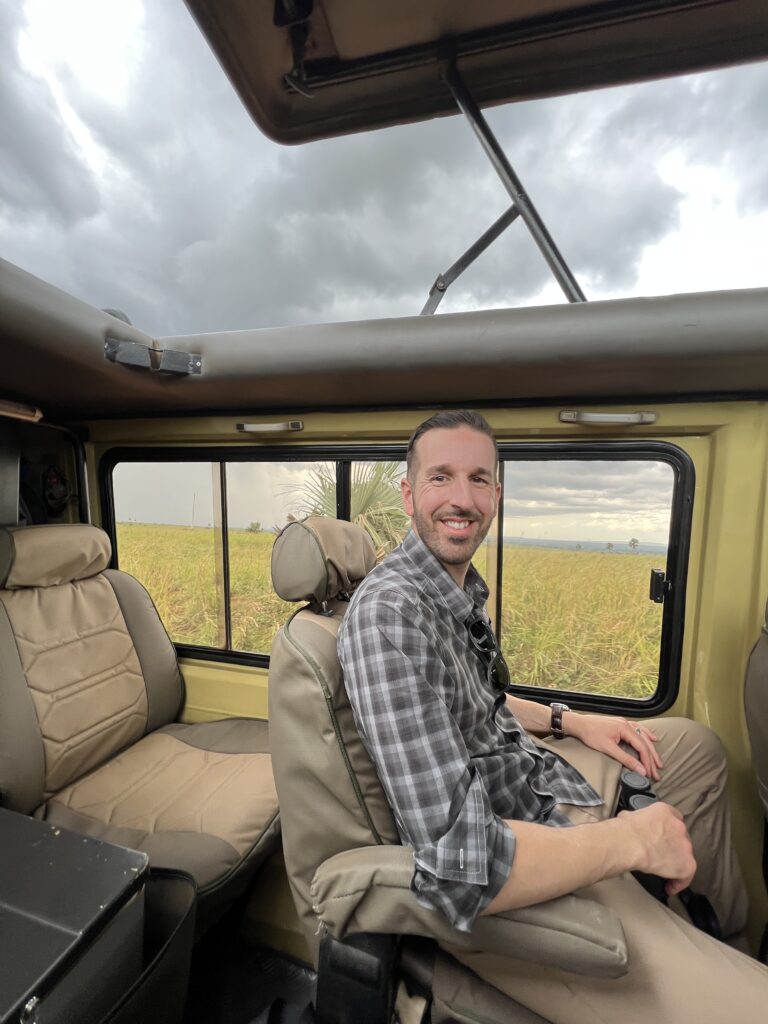
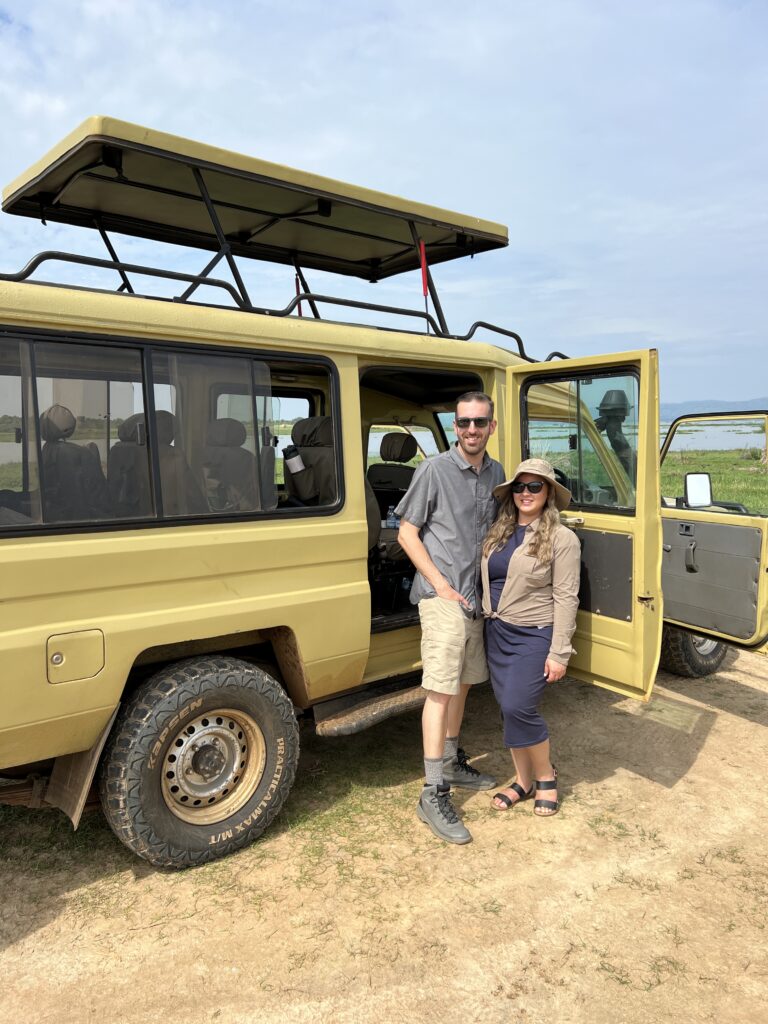
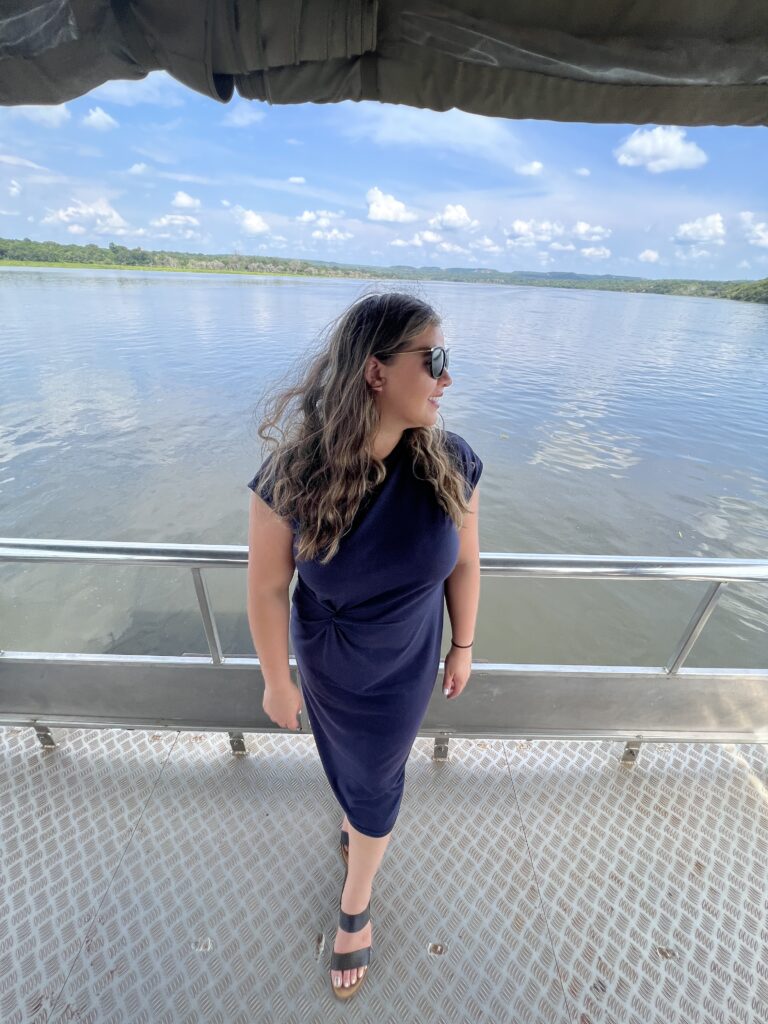
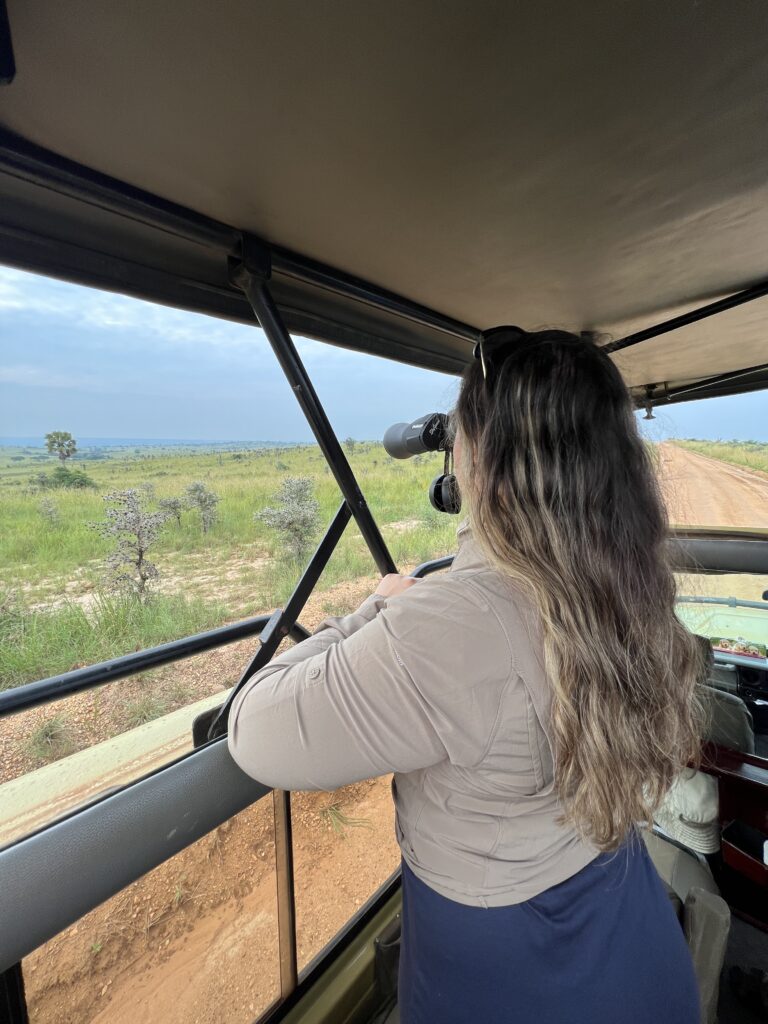
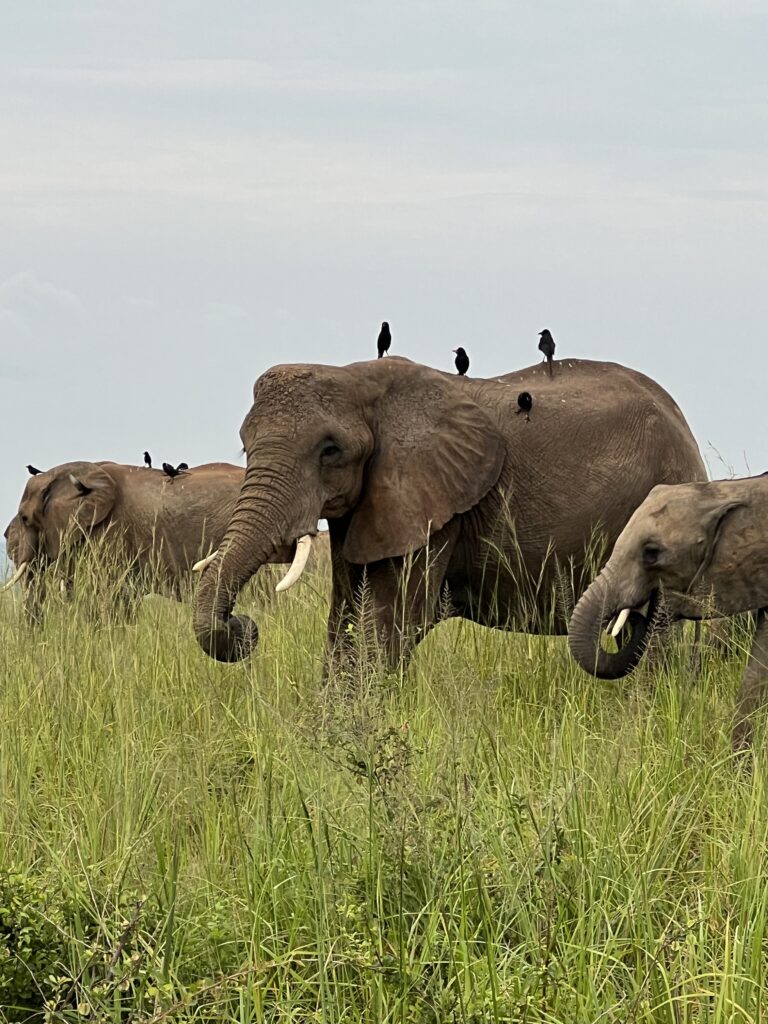
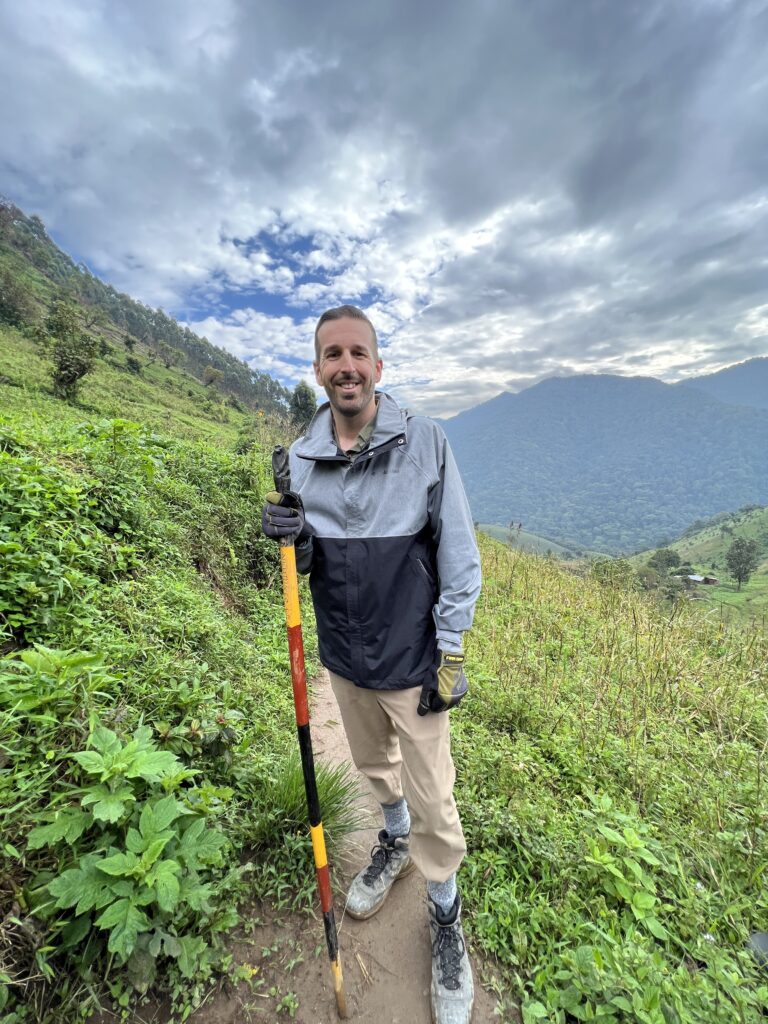
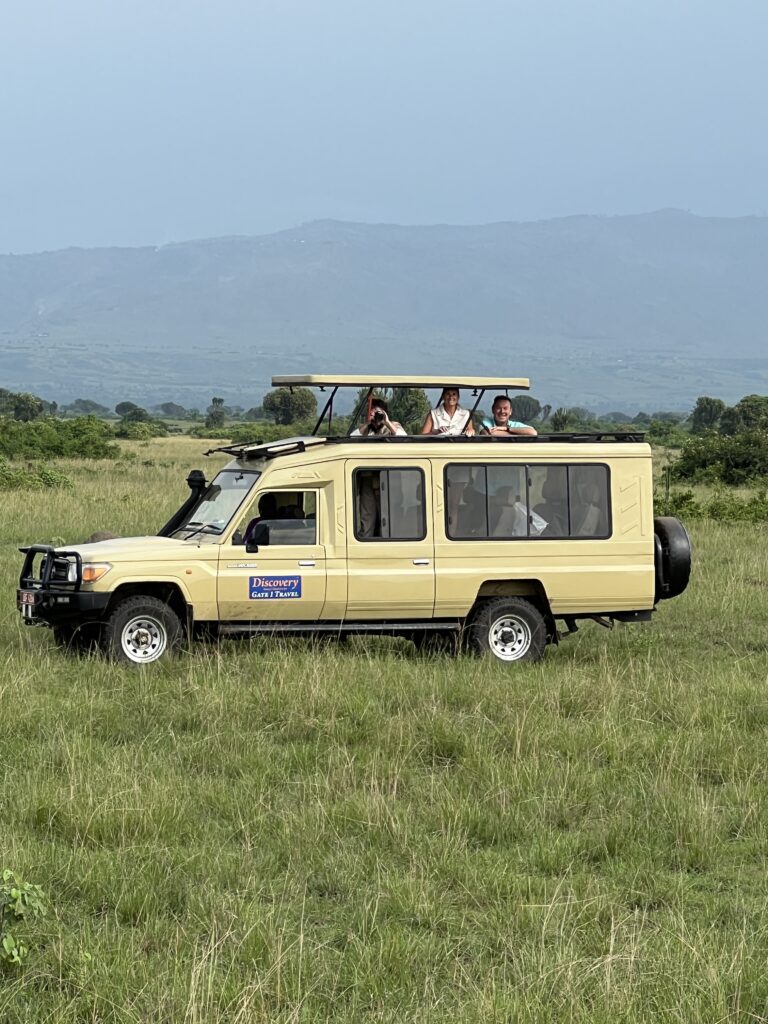
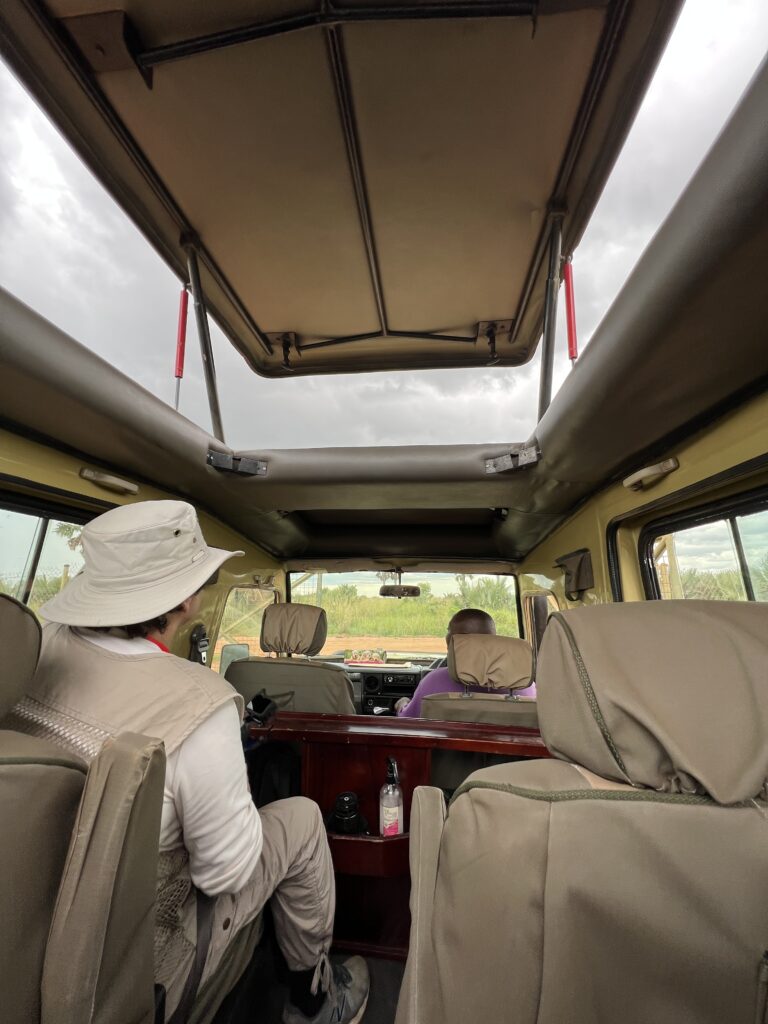
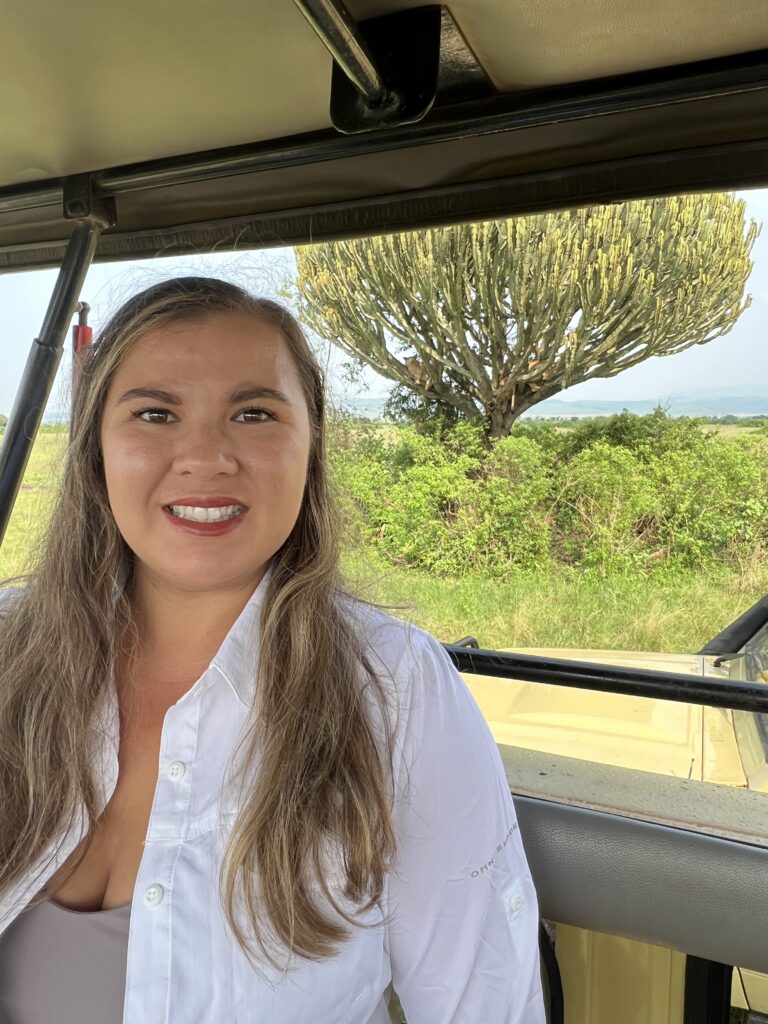
Safari Tips – Episode Transcript
Today you have just me and Brittany talking to you guys all about safaris and giving you tips more particularly on how to make an enjoyable safari experience.
You know, Brittany and I have been on a couple on our trips to Africa, South Africa, Zimbabwe, Uganda, and let me tell you something, once you start going on safaris, there’s really no going back.
1:13
You could think to yourself, how many times can I really see the same animals over and over again in that environment?
But it doesn’t get old.
There’s always that thrill and excitement and we’re here today to give you guys tips on to make in your safari experience when you go on one more enjoyable.
1:28
Yeah, so we have 10 quick tips for you guys, and I’m going to dive into #1 And this one may not be obvious, but there are actually different types of safaris.
When people think of safaris, they often think of only land safaris where you drive around and see the animals.
1:44
But we’ve also done river safaris and this is a great way to see hippos, elephant swimming animals, drinking crocodiles and even walking safaris.
Yeah, so the river safari is really fun.
You’re on a boat and like you said, Brittany, you could see all sorts of animals either in the water or along the shores while you are in the water on that boat.
2:06
It’s a really cool perspective.
But what I really enjoy is The Walking safari.
So when we were in South Africa and Zimbabwe and Uganda, we didn’t do a true walking safari, right?
They have several places where you can actually go out and you’re out there with the big game.
You know, the elephants, rhinos, lions, etcetera.
2:24
Very few places do them, but they do do them.
But what we did do, which also kind of counts of course, as a safari, we did it with large primates.
We did walking safaris when we did the gorilla trek in Windy Impenetrable Forest National Park in Uganda as well as the chimpanzee trek in Kabali National Park also in Uganda.
2:44
So walking safaris, don’t underestimate those.
Those are really fun and exciting and a great way for you to get up close with the animals also.
Another tip for you is to research seasons.
So you maybe want to visit to see baby animals.
So you want to visit sometime in November through March because their spring starts in September because they’re South of the equator.
3:04
But you may also want to miss mosquito season.
So you just have to do research on where you’re going, what season it is, and what you want to see and get out of that experience because if you want to see the great migration, you have to go and research to go during that time.
Yeah, there’s specific times for the migration, specific time in which it’s like mainly mosquito season.
3:24
Of course, there’s always kind of mosquitoes around, but really, really bad.
When we went to South Africa at the end of August, you know, early September, it wasn’t mosquito season quite yet.
And we actually didn’t take the malaria medication that we brought with us.
The guide says, look, I can’t give you health tips or advice.
3:41
And again, granted, I do live here and I’m from here, but I wouldn’t be taking it because you guys aren’t really in major season right now, right?
So figure it out, research the seasons that way you know what’s best for you based off of which one of those things you kind of prioritize.
3:57
Another really great tip here for you is give yourself a buffer day before you go on the safari.
So be sure to land in country, city, or wherever you’re going a day beforehand.
Do some other fun things in the town or area where you’re at.
It just really gives you adequate time to get acclimated to the new time zone, rest after traveling, things like that.
4:19
Yeah, you don’t want to be jet lagged while you’re on safari because there’s so much sitting that you’re doing while you’re waiting to see these animals, and you don’t want to get tired and fall asleep.
So allow your body to adjust to the time zone because you don’t want to miss something when you’re on this really exciting safari.
4:35
You know, when we went to Uganda, Bob and Lorraine, they ended up getting in a couple days early talking about how they stayed at the hotel.
Our hotel in Uganda had a beautiful rooftop pool, bar, restaurant, and they said they were just enjoying themselves, relaxing.
Whereas conversely, you know, Jeff and Melissa, they ended up not purposefully.
4:54
They were supposed to get in late at night, but flight delays had them get in early morning the day that we were actually leaving.
And I know their first day wasn’t a fun experience.
So really getting there beforehand will go a long way.
Another tip for you is to hire or a driver.
So if you aren’t going on a guided tour, make sure that you actually do hire a driver that’s familiar with the National Park or reserve that you’re going to.
5:17
You don’t want to drive yourself on safari.
The reserves are huge and the drivers actually know where they’re going to be going, where animals congregate, and they typically have the ability to get in touch with other drivers so that everyone can see the exact same exciting things.
5:34
Yeah.
I mean, in these reserves and national parks, there’s not paved roads.
If there are, it’s at the very entrance.
But once you get in there, this is a wild area.
So it is a dirt Rd.
It’s not like you’re in a city where there’s street signs, etcetera.
You can get lost very easily.
5:49
On our safaris that we’ve been on, I mean, I couldn’t even keep track of where we were going.
So many crisscrossing dirt roads, which way to go, straight, left, right, doesn’t really matter.
But those guides do know it.
And I think the most important thing is, and you said it, Brittany, is that the guides are talking to each other.
6:06
So if somebody spots something, they all are on a radio frequency that they are sharing that information with other drivers.
That way Safari vehicles can come and see that.
Whereas if you’re in your own private vehicle, you’re not really going to be able to do that or have that experience to know, hey, yeah, this animal was found over here.
6:24
We haven’t seen a lion yet.
Let’s go.
So hire a driver.
Next tip for you is to be quiet while you’re on safari.
So the best way to spot the animals in their natural habitat is to be quiet, and you don’t want to spook them if you’re making noise they don’t want to be around.
So the quiet you are, the more you could observe them in their natural habitat, see them hunt, and that’s really exciting.
6:45
Super exciting.
And just to show you how much noise goes a long way, again, when we were in South Africa, we were watching a lioness on a hunt.
She was hiding, she was looking at some sort of antelope herd.
And all you need is that one little twig snap or a little bit of a noise.
7:03
And again, all the animals are kind of used to that because of course they’re watching out for predators on them, but you don’t want to be making that noise because you will spook them.
And we just watched that entire herd of antelope scatter.
So be quiet.
Another tip, bring binoculars.
7:20
It’s the best way to spot animals, especially if they are far away.
A lot of times you don’t really get lucky that the animals are super close to you.
They are off in the distance.
So you want to have those binoculars and often enough to you can’t go off roading.
7:35
So you may be able to see them from the road, but you can’t go off road to get a little bit closer.
So they may be close, but not close enough and you still want those binoculars or off in the distance.
Or you want the binoculars because you spot something in the distance and there’s a road that will get you closer.
But maybe you didn’t see that with your naked eye.
7:52
So having the binoculars to scout which area you’re going to go to next can be really helpful.
Jamal is actually a very good animal spotter.
I was surprised with how good I was at spotting.
I won’t say I was fantastic, but let me say there’s something exciting about out seeing them and then calling them out, and it’s almost like a game.
8:12
You just want to be the one to find it.
I feel like every person in the safari vehicle wants to be the person to spot something off in the distance, especially if it’s an animal you haven’t seen yet.
And while we’re talking about binoculars, I would recommend a pair per person.
We actually bought 2 pairs to bring with us and not everyone in our group did, and so we were sharing with other people.
8:33
Ours were actually really great.
They had really good visibility and they were pretty affordable.
Well, so I’m actually going to link them in the show notes for you guys.
Another tip for you guys is bring a scarf.
It’s going to be helpful in so many ways, maybe more particularly for the girls.
8:48
I know not a lot of guys really wear scarves unless you’re in winter weather, but the roads can be very dusty and the scarf serves multiple purposes.
You can use it to keep some of the dirt off of your face, help you breathe a little bit more cleaner if it’s over your mouth, and then of course, just kind of tie it around.
9:07
You keep your hair from blowing and getting all messed up while you’re on those open air vehicles.
A lot of people don’t realize that in Africa it does get really cold in the morning and in the evenings at times, and so the scarf can also just serve as an extra layer to have in the morning to help you warm up or in the evening.
9:24
Next tip for you guys is to bring eye drops and bug spray while you’re there.
The air is a little bit drier and dusty, so you’re going to want some relief for your eyes.
That’s why it’s important to bring those eye drops and then the bug spray.
It’s just nice to keep yourself protected.
Did bring the bug spray to keep the bites to a minimum.
9:41
Even if it’s not during mosquito season right, you will still probably get bit, just not maybe torn up.
But the bug spray?
Absolutely.
So a tip for how to dress while you’re on safari, make sure you’re wearing light, breathable clothing in neutral colors.
You want to avoid colors like red because it can frighten animals.
9:59
And you also want to avoid black or dark blue, which is something I learned on our last safari because you want to avoid the teatsy flies which will bite you and they do to hurt.
So highly recommend dressing appropriately and make sure to layer while you’re there.
Well, those teetse flies by and hurt, but they can also spread disease just as well.
10:20
Fortunately, they’ve been able to eradicate a lot of the disease and illness that spreads with those bites.
But yeah, that is a target for you if you are wearing that black and dark blue.
So neutral safari colors.
Like honestly, a lot of stuff that you see in movies is fake Hollywood stuff.
10:36
But one thing that they do not do fake in Hollywood is tell you really how you should dress on safari.
And so follow the Hollywood model.
That’s kind of the color palette and style you should be going for.
And the final tip that we have for you guys is the bathroom.
You are out in the middle of nowhere nature, right?
10:53
So if you got to go, you’re going out in nature.
If you are lucky, there are actual restrooms so you don’t have to do it in nature.
So maybe at the entrance to the National Park or the only place that I feel like we really saw in a big National Park, which was Kruger National Park, not at the entrance, but somewhere kind of in the middle.
11:14
Of course, they did set up a meeting point with cafeteria, but that park is the main National Park in Africa for safari.
So that one has a little bit more infrastructure in it.
And they did have toilets in that area.
But everywhere else, the only place that we ever saw restrooms were really at the front at the entrance of the park.
11:32
So be sure to utilize it there.
Otherwise you are going to have to go out in nature.
And although we’ve seen in a few western type bathrooms while we’ve been on safari, sometimes there’s not.
So ladies, be sure to bring your shiweis or your kula clothes.
And that’s the quick little mash up that we have here for you guys on how to make your Safari experience better.
11:53
We hope when you guys do your Safari, you put these tips and advice to use because it’s going to make it so much more enjoyable for you.
Thanks so much for tuning in to just the Tip.
Make sure to subscribe, leave a review, and follow us on all the socials at Travel Squad Podcast.
And have fun traveling this weekend.
Comments
Comments Off on Top Safari Tips for Your First Safari